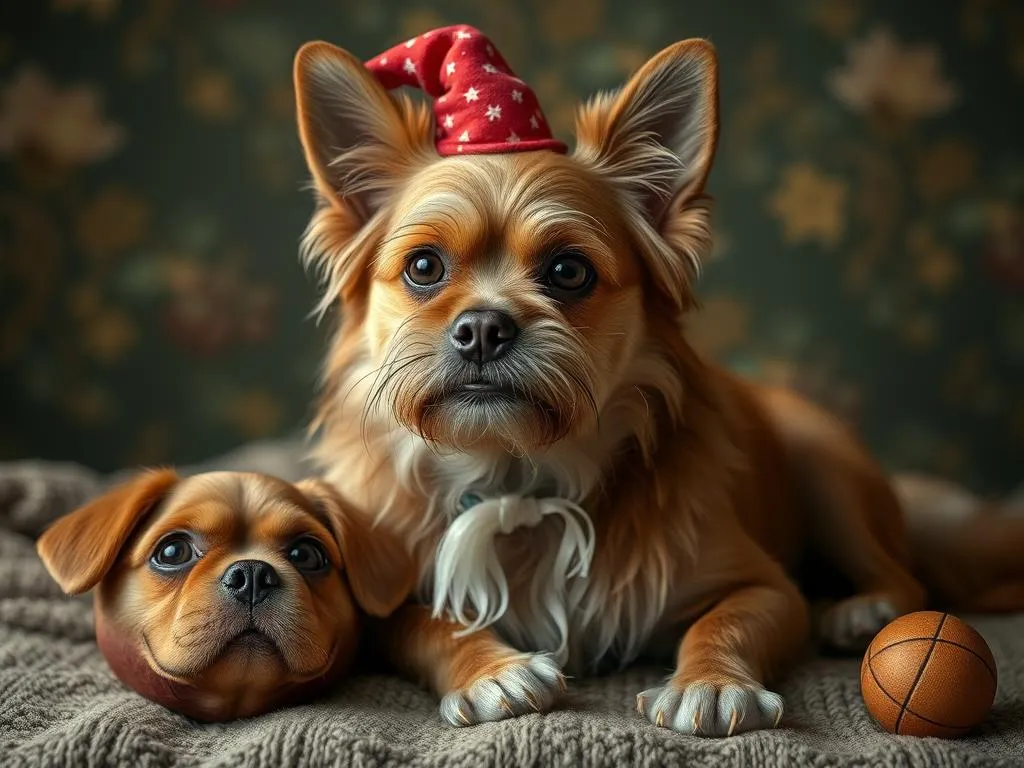
Introduction
Superstitions have long been a part of human culture, shaping beliefs and behaviors across various societies. They often arise from a need to explain the unexplainable or to find patterns in the chaos of life. Superstitions about pets are particularly fascinating, intertwining with our relationships with animals and reflecting our fears, hopes, and cultural narratives.
Pets play a significant role in human life, providing emotional and psychological support that enhances our well-being. The companionship of pets can reduce stress, alleviate loneliness, and contribute to overall happiness. However, alongside the joy they bring, pets are also enveloped in a veil of superstition, leading to intriguing beliefs and practices that differ across cultures.
As we delve into the world of superstitions about pets, we will explore their historical roots, common beliefs surrounding various animals, and the psychological impact they hold over pet owners.
Historical Background of Pet Superstitions
Origin of Superstitions
The origins of superstitions regarding animals can be traced back to ancient civilizations where animals were often seen as conduits between the physical and spiritual worlds. For instance, in many cultures, certain animals were revered as sacred or believed to possess special powers. This foundational belief set the stage for a myriad of superstitions that have persisted through the ages.
Cultural Influences
Different cultures have their unique beliefs surrounding pets, heavily influenced by their historical context and spiritual practices. In ancient Egypt, cats were worshipped and considered protectors of the home. Their ability to hunt vermin was admired, but their spiritual significance led to a plethora of superstitions about pets. Conversely, in some Western cultures, black cats are often associated with bad luck, a belief stemming from their historical association with witchcraft.
Evolution Over Time
As societies have modernized, some of these beliefs have transformed or faded away, while others have persisted, adapting to contemporary contexts. The decline of certain superstitions can be attributed to increased understanding of animal behavior and a shift towards more scientific approaches in explaining phenomena that were once attributed to mystical forces.
Common Superstitions About Pets
Cats
-
Black Cats Crossing Your Path: The belief that a black cat crossing your path brings bad luck is prevalent in many Western cultures. Conversely, in some European countries, a black cat is considered a good omen, especially if it appears on your doorstep.
-
Cats Sensing Spirits: Many believe that cats can see or sense spirits, often attributed to their keen senses and mysterious behavior. This belief can lead to the notion that a cat’s sudden actions—like staring at seemingly nothing—indicate the presence of supernatural beings.
Dogs
-
Howling as an Omen of Death: In various cultures, a dog howling at night is considered a bad omen, often interpreted as a sign of impending death. This superstition can instill fear and anxiety among dog owners, making them hyper-aware of their dog’s vocalizations.
-
Guardians of the Afterlife: Dogs have been viewed as protectors of the afterlife in many traditions. This belief stems from their loyalty and companionship, leading to the idea that they guide souls to the afterlife, a notion prevalent in some ancient cultures.
Birds
-
Messengers of Good or Bad News: Birds, especially in folklore, are often seen as messengers. The arrival or departure of certain birds can be interpreted as good or bad news, depending on the species and cultural context.
-
Canaries in Mines: Historically, canaries were used in coal mines as early warning systems for toxic gases. This practice has led to various superstitions about pets, where canaries are seen as harbingers of danger.
Other Pets
-
Rabbits: In many cultures, rabbits are considered symbols of fertility and prosperity. However, a rabbit’s foot is also thought to bring good luck, leading to various rituals surrounding their presence.
-
Exotic Pets: Pets such as iguanas or ferrets may carry unique superstitions, often influenced by regional beliefs. For example, some cultures regard certain reptiles as symbols of transformation, while others may have negative associations.
The Psychological Impact of Pet Superstitions
Fear and Anxiety
Superstitions can often invoke a sense of fear or anxiety among pet owners. If a pet exhibits unusual behavior, owners may attribute it to underlying superstitions rather than considering medical or behavioral explanations. This can lead to unnecessary worry and stress.
Behavioral Changes
Beliefs surrounding superstitions about pets may influence how owners care for their animals. For instance, someone who believes that a dog howling indicates death might become overly cautious or anxious, potentially affecting the pet’s well-being. This behavior can create a cycle of anxiety that negatively impacts both the owner and the pet.
Coping Mechanisms
To counteract negative superstitions, some pet owners develop rituals or practices meant to ward off bad luck. This could involve specific routines, charms, or even avoiding certain actions that they believe might trigger a negative outcome. These coping mechanisms can provide a sense of control, even if they are rooted in unfounded beliefs.
Cultural Variations in Pet Superstitions
Western vs. Eastern Beliefs
In Western cultures, superstitions about pets often revolve around specific animals, such as cats and dogs, with a focus on omens of good or bad luck. In contrast, Eastern cultures may emphasize the spiritual aspects of animals, viewing them as messengers from the divine or as embodiments of ancestral spirits.
Indigenous and Tribal Beliefs
Indigenous tribes around the world hold diverse beliefs about pets, often rooted in their relationship with nature. For example, some tribes view wolves as sacred, believing they embody the spirit of the hunt and serve as guides. These beliefs are often tied to the tribe’s identity and cultural practices.
Modern Interpretations
Globalization has led to a blending of various cultural beliefs, creating new interpretations of old superstitions. For instance, the idea of a “lucky” pet may vary widely in meaning, influenced by the owner’s cultural background and personal experiences. This blending can lead to unique rituals that reflect a combination of traditions.
Scientific Perspective on Pet Superstitions
Psychology of Belief
The human tendency to create and believe in superstitions can be explained through psychology. Cognitive biases, such as confirmation bias, lead people to notice patterns or coincidences that reinforce their beliefs. This psychological framework helps explain why superstitions about pets endure, despite a lack of empirical evidence.
Impact on Animal Welfare
Certain superstitions about pets can negatively impact animal welfare. For example, beliefs that certain animals bring bad luck may lead to neglect or abandonment. Understanding the origins of these beliefs is crucial for promoting responsible pet ownership and ensuring the well-being of all animals.
Debunking Myths
Providing evidence-based information can help debunk common myths surrounding pet superstitions. For instance, the belief that black cats bring bad luck can be countered with the understanding that these animals are no different from any other cat in terms of temperament and behavior. Education plays a significant role in dispelling these myths and fostering a more compassionate view of pets.
Personal Stories and Anecdotes
Interviews with Pet Owners
Real-life stories from pet owners can illuminate the impact of superstitions about pets on daily life. For example, a dog owner might share how they avoid walking their dog during a full moon due to fears of bad luck, despite the lack of any real evidence to support this belief.
Cultural Narratives
Cultural narratives often highlight the complexities of pet superstitions. In some cultures, the arrival of a specific animal may be celebrated as a good omen, while in others, it may be viewed with suspicion. These stories reflect the rich tapestry of beliefs that shape our interactions with pets.
Conclusion
In exploring superstitions about pets, we see a fascinating interplay between culture, psychology, and our deep-seated relationships with animals. From the ancient beliefs that still linger today to the modern interpretations that continue to evolve, superstitions about pets reveal much about human nature and our desire to find meaning in the world around us.
Reflecting on our own beliefs about pets can provide valuable insight into how we navigate our relationships with these beloved companions. Whether we view them through the lens of superstition or science, it is clear that pets hold a significant place in our lives, enriching our experiences and challenging our perceptions.









